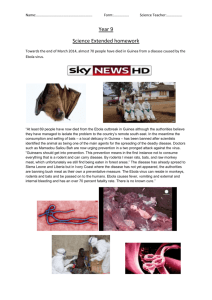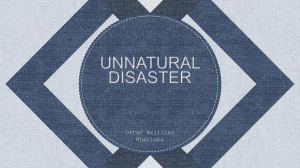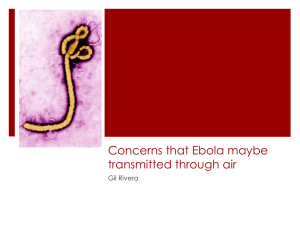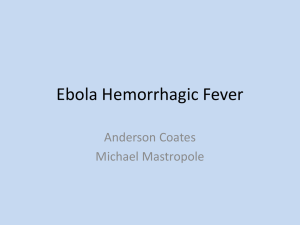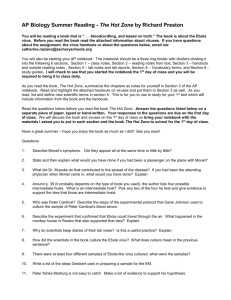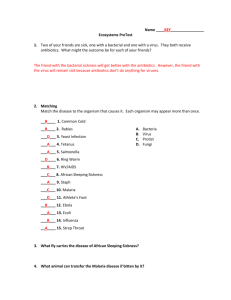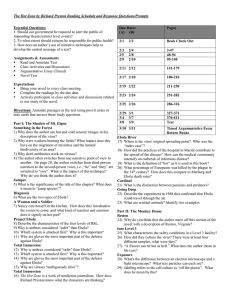FAQs PREPARED, NOT SCARED
advertisement
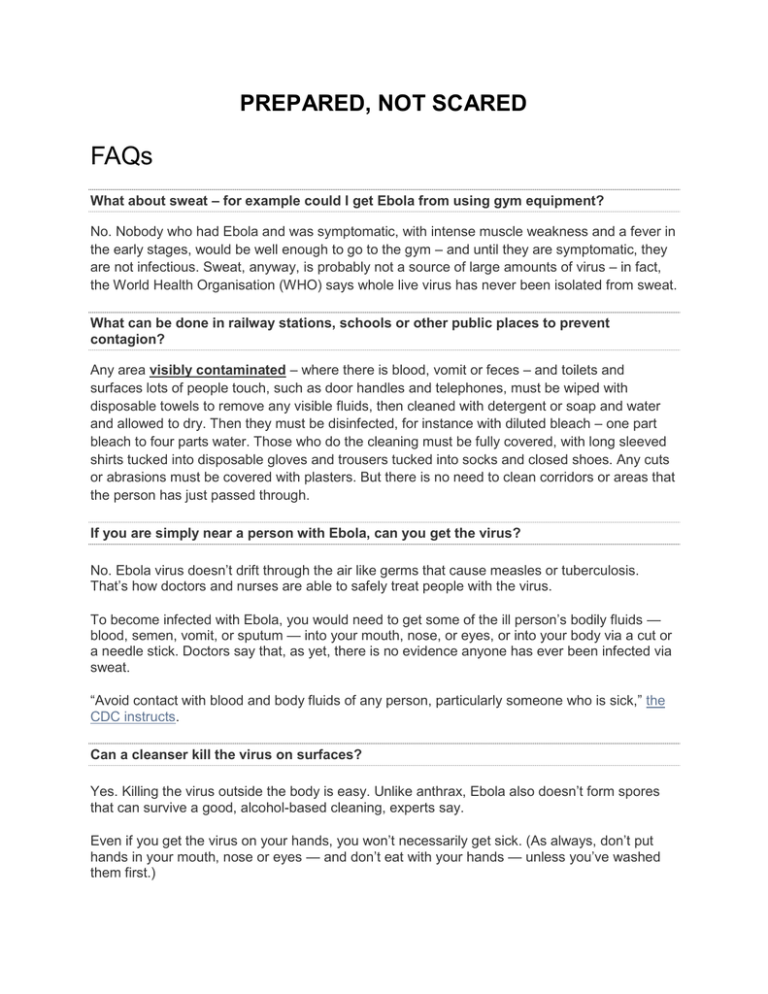
PREPARED, NOT SCARED FAQs What about sweat – for example could I get Ebola from using gym equipment? No. Nobody who had Ebola and was symptomatic, with intense muscle weakness and a fever in the early stages, would be well enough to go to the gym – and until they are symptomatic, they are not infectious. Sweat, anyway, is probably not a source of large amounts of virus – in fact, the World Health Organisation (WHO) says whole live virus has never been isolated from sweat. What can be done in railway stations, schools or other public places to prevent contagion? Any area visibly contaminated – where there is blood, vomit or feces – and toilets and surfaces lots of people touch, such as door handles and telephones, must be wiped with disposable towels to remove any visible fluids, then cleaned with detergent or soap and water and allowed to dry. Then they must be disinfected, for instance with diluted bleach – one part bleach to four parts water. Those who do the cleaning must be fully covered, with long sleeved shirts tucked into disposable gloves and trousers tucked into socks and closed shoes. Any cuts or abrasions must be covered with plasters. But there is no need to clean corridors or areas that the person has just passed through. If you are simply near a person with Ebola, can you get the virus? No. Ebola virus doesn’t drift through the air like germs that cause measles or tuberculosis. That’s how doctors and nurses are able to safely treat people with the virus. To become infected with Ebola, you would need to get some of the ill person’s bodily fluids — blood, semen, vomit, or sputum — into your mouth, nose, or eyes, or into your body via a cut or a needle stick. Doctors say that, as yet, there is no evidence anyone has ever been infected via sweat. “Avoid contact with blood and body fluids of any person, particularly someone who is sick,” the CDC instructs. Can a cleanser kill the virus on surfaces? Yes. Killing the virus outside the body is easy. Unlike anthrax, Ebola also doesn’t form spores that can survive a good, alcohol-based cleaning, experts say. Even if you get the virus on your hands, you won’t necessarily get sick. (As always, don’t put hands in your mouth, nose or eyes — and don’t eat with your hands — unless you’ve washed them first.)
